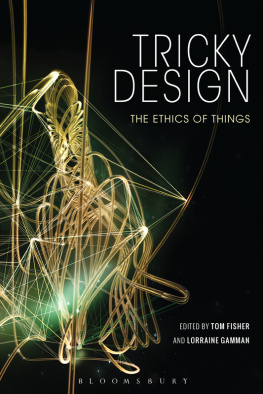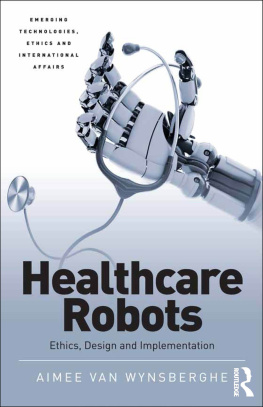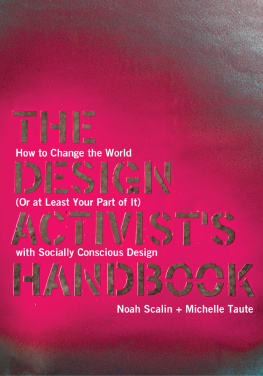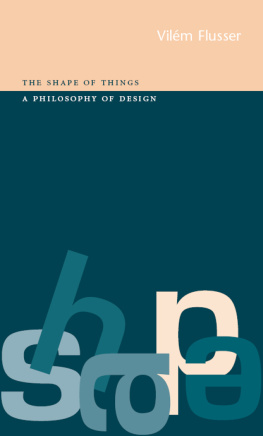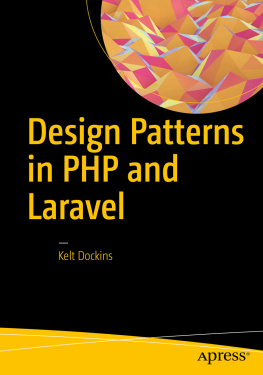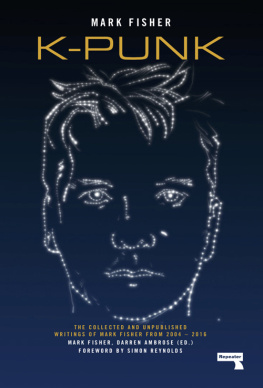Tom Fisher - Tricky Design The Ethics of Things
Here you can read online Tom Fisher - Tricky Design The Ethics of Things full text of the book (entire story) in english for free. Download pdf and epub, get meaning, cover and reviews about this ebook. year: 2018, publisher: Bloomsbury Visual Arts, genre: Art. Description of the work, (preface) as well as reviews are available. Best literature library LitArk.com created for fans of good reading and offers a wide selection of genres:
Romance novel
Science fiction
Adventure
Detective
Science
History
Home and family
Prose
Art
Politics
Computer
Non-fiction
Religion
Business
Children
Humor
Choose a favorite category and find really read worthwhile books. Enjoy immersion in the world of imagination, feel the emotions of the characters or learn something new for yourself, make an fascinating discovery.
- Book:Tricky Design The Ethics of Things
- Author:
- Publisher:Bloomsbury Visual Arts
- Genre:
- Year:2018
- Rating:4 / 5
- Favourites:Add to favourites
- Your mark:
- 80
- 1
- 2
- 3
- 4
- 5
Tricky Design The Ethics of Things: summary, description and annotation
We offer to read an annotation, description, summary or preface (depends on what the author of the book "Tricky Design The Ethics of Things" wrote himself). If you haven't found the necessary information about the book — write in the comments, we will try to find it.
Tricky Design The Ethics of Things — read online for free the complete book (whole text) full work
Below is the text of the book, divided by pages. System saving the place of the last page read, allows you to conveniently read the book "Tricky Design The Ethics of Things" online for free, without having to search again every time where you left off. Put a bookmark, and you can go to the page where you finished reading at any time.
Font size:
Interval:
Bookmark:
Tricky Design
Tricky Design
The Ethics of Things
Edited by
Tom Fisher and Lorraine Gamman

Shana Agid is an artist/designer, teacher and activist whose work focuses on relationships of power and difference, particularly regarding sexuality, race and gender in visual and political cultures. Agid is Assistant Professor of Arts, Media and Communication at Parsons the New School for Design and holds an MFA in Printmaking and Book Arts and MA in Visual and Critical Studies from California College of the Arts (CCA), and a PhD in Design from RMIT.
Yoko Akama is Associate Professor in communication design at RMIT University, Australia. Her design practice is informed by Japanese philosophy to consider how and what futures can be designed together. Her current work contributes towards the efforts of Indigenous Nations enact self-determination and governance.
Tim Dant recently retired as Professor of Sociology at Lancaster University. He has written about material culture, critical theory and phenomenology. His most recent book Television and the Moral Imaginary was published by Palgrave in 2012.
Tom Fisher is Professor of Art and Design at Nottingham Trent Universitys School of Art and Design. He was once a furniture maker, and is now a musician and musical instrument maker as well as an academic who grew up with the new art history under the influence of Marxists and Feminists in Leeds in the 1970s. His research interests emerge from this mixture. He wrote a PhD about materials and consumption, has done government-funded research on the environmental sustainability of clothing and is concerned with the development of multidisciplinary research in Design. To help pursue this last, he is treasurer of the Design Research Society.
Lorraine Gamman is Professor of Design at Central Saint Martins and the Director of the award-winning Design Against Crime Research Centre (DACRC) she founded in 1999. She is the author of Gone Shopping the Story of Shirley Pitts, Queen of Thieves, Bloomsbury (2012) and co-author of numerous recent design research articles on empathy, participatory and socially responsive design. She was Principal Investigator on the AHRC-funded Extending Empathy Network (201416) and is currently Principal Investigator on AHRC-funded Design Thinking for Prison Industries (201418), which has developed Makeright an anti-theft design education course and bag label with HMP Thameside and is attempting to scale the project to other UK prisons.
Pras Gunasekera is a designer, researcher and strategist. After graduating from MA Industrial Design, he cofounded Bidean, a more than profit enterprise in design and mental health and subsequently spent eighteen months co-setting up a design studio at HMP Thameside and working part time there to co-deliver Makeright a design thinking for prison industries course. He is currently employed on the BA Product Design and BA Ceramic Design programmes at Central Saint Martins, where he is also Research Associate with the Design Against Crime Research Centre. In 2017, he was awarded a fellowship from the Winston Churchill Memorial Trust to understand how prison resettlement opportunities in key European countries might benefit from design research methods.
Mahmoud Keshavarz is a Post-Doctoral Fellow within the Engaging Vulnerability Research Program at the Department of Cultural Anthropology, Uppsala University. He has been a Visiting Scholar at Parsons the New School and University of Gothenburg. His research and publications sit at the intersection of design studies, cultural anthropology and politics of movement and migration. His book The Design Politics of the Passport is forthcoming in 2018 with Bloomsbury Academics. He is a member of the Decolonizing Design group.
Jeremy Kidwell is Lecturer in Theological Ethics at the University of Birmingham. In his research Jeremy explores the ethical issues that lie at the intersection of nature and culture ranging from ecological ethics, activist studies, religious conceptions of labour to the philosophy of technology. His most recent book The Theology of Craft and the Craft of Work (Routledge, 2016) explores an ecological theology of craft, developed in conversation with ancient accounts of craft work and contemporary writing on work and design. Prior to his academic work, Jeremy worked as an engineer and trainer in telecommunications and information technology and he continues to provide consulting services on network security, infrastructure, and the use of information technology in teaching and learning.
Lucy Kimbell is Director of the Innovation Insights Hub and Professor of contemporary design practices at University of the Arts London. She researches design thinking and service design. Lucys Service Innovation Handbook (2014) translates design for managers, who she teaches at Said Business School, University of Oxford.
Ann Light is Professor of Design and Creative Technology at the University of Sussex, where she leads the Creative Technology Research Group. She is a design researcher specializing in social well-being and sustainable futures, the politics of participation and the long-term social and cultural impact of digital networks in post-industrial and developing regions.
Luiza Prado de O. Martins and Pedro J. S. Vieira de Oliveira are Brazilian researchers, artists and activists. They have both concluded their PhDs at the University of the Arts Berlin, fully funded by the Brazilian Council of Research and Development (CNPq) and the German Academic Exchange Service (DAAD). Their joint work and research inquires and intervenes, from a decolonizing perspective, on material practices that secure and perpetuate colonial structures of power, focusing on manifestations of gendered and sonic violences. Together they are also two-eighths of the Decolonising Design group.
Nidhi Srinivas is Associate Professor of Management at the New School, and co-founder of the Parsons DESIS Lab. His research dialogues with critical theory in a variety of applied settings, including urban activism, ecological politics, international development and civic design.
Eduardo Staszowski is Associate Professor of Design Strategies at Parsons School of Design, and Director/Co-founder of the Parsons DESIS Lab. He studies design as a method and language, and its role as an intermediary, creating and orienting processes of social innovation and sustainability. He seeks ways to enhance participation in policy development and civic design.
Adam Thorpe is Professor of Socially Responsive Design at Central Saint Martins College, University of the Arts London (UAL). He is Co-director of the Design Against Crime Research Centre and Coordinator of the UAL DESIS Lab (Design for Social Innovation and Sustainability). His research activities are practice based and explore the role of design in addressing societal goals and challenges. He is currently leading the Public Collaboration Lab, researching and prototyping a collaborative learning and doing platform that identifies and leverages synergies between design education and local government.
Cameron Tonkinwise has a background in continental philosophy and continues to research what design practice can learn from material cultural studies and sociologies of technology. His primary area of research and teaching is Sustainable Design. Cameron is widely published on the ways in which Service Design can advance Social Sustainability by decoupling use and ownership what these days is referred to as the Sharing Economy. He has also been a strong advocate for the importance of critical practice-based design research. Camerons current focus is Transition Design design-enabled multi-level, multi-stage structural change towards more sustainable futures.
Next pageFont size:
Interval:
Bookmark:
Similar books «Tricky Design The Ethics of Things»
Look at similar books to Tricky Design The Ethics of Things. We have selected literature similar in name and meaning in the hope of providing readers with more options to find new, interesting, not yet read works.
Discussion, reviews of the book Tricky Design The Ethics of Things and just readers' own opinions. Leave your comments, write what you think about the work, its meaning or the main characters. Specify what exactly you liked and what you didn't like, and why you think so.

